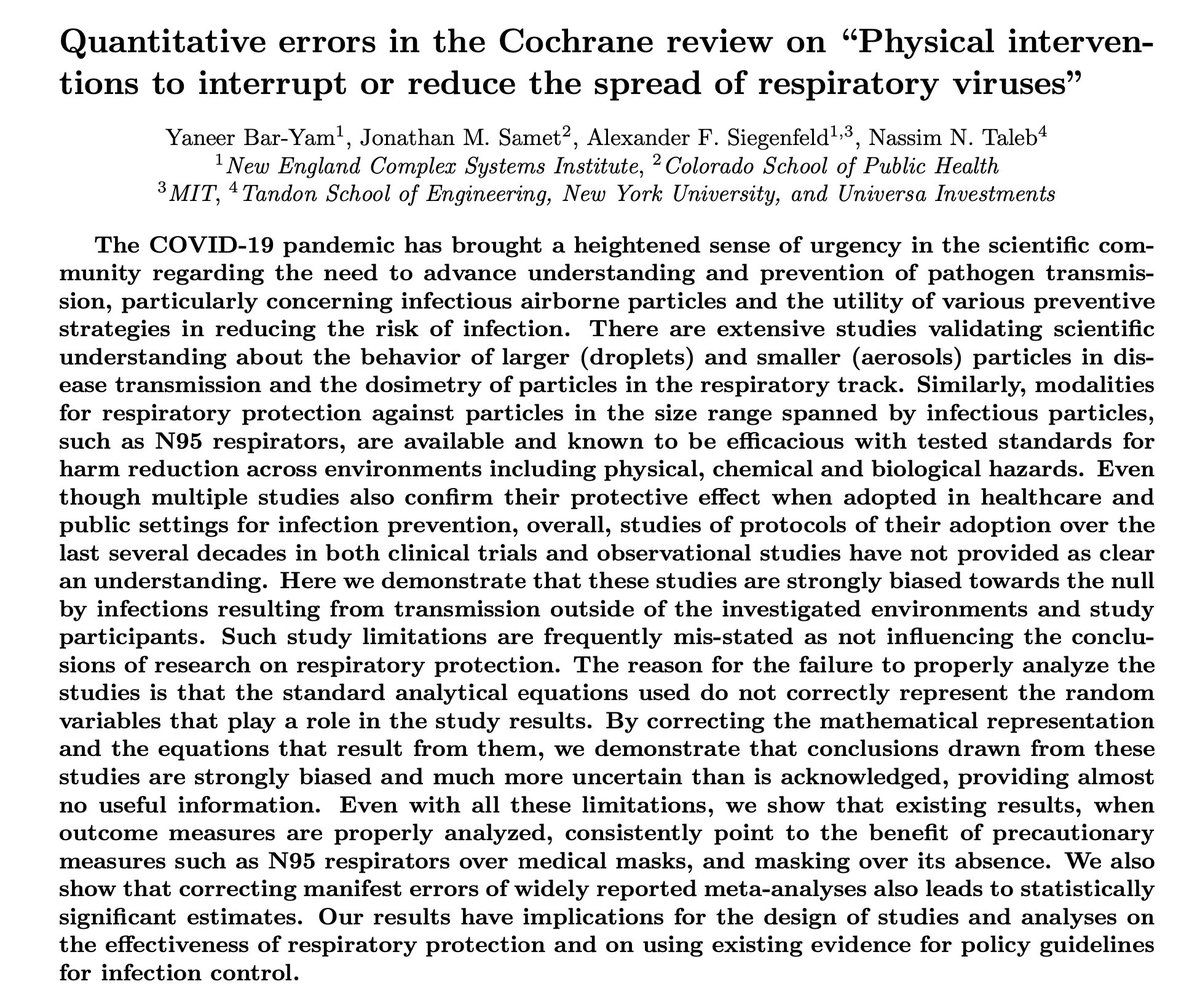"What Companies Can Do Against Long Covid
By Britta Domke
"Many companies are overlooking the significant risk posed by Long Covid, a decision that could have serious repercussions. With a few targeted measures, it's possible to make workplaces largely safe from coronavirus. 1/
By Britta Domke
"Many companies are overlooking the significant risk posed by Long Covid, a decision that could have serious repercussions. With a few targeted measures, it's possible to make workplaces largely safe from coronavirus. 1/
"Deserted workplaces, everyone's out with Corona: For businesses, this wave of illness often translates into considerable revenue losses.
2/
2/
"The news from Jena University Hospital barely made a ripple in most newspapers. The business sector remained silent. However, what an interdisciplinary team from Jena revealed in a study with 40 Long Covid patients should be a cause for concern among employers.
3/
3/
"The researchers discovered that a Corona infection substantially diminishes cognitive performance in those affected: Subjects processed visual information more slowly and experienced faster exhaustion compared to a similarly sized control group.
4/
4/
"We interpret this as evidence of chronically diminished brain activity in Long Covid, primarily manifesting as slowed information processing," states Kathrin Finke, the psychological head of the Jena Post-Covid Clinic.
5/
5/
Known as 'brain fog,' this phenomenon is a typical aftermath of a Corona infection. A meta-analysis of the most common Post- or Long Covid symptoms showed that, on average, 32 percent of people experienced such concentration and memory difficulties following an acute infection.6/
"The full implications for employers are not yet known. Nevertheless, there is growing evidence that Long Covid's effects could have a more lasting impact on the economy than the lockdowns did. A virus that slows down cognitive processes, leading to persistently higher ... 7/
"absenteeism and increased occupational disability, is a concerning prospect for businesses. Yet, surprisingly, few companies have publicly acknowledged this issue - not even Audi, whose former CEO Markus Duesmann had to take a lengthy break from work in 2021 due to Long Covid.8/
"For many leaders, the continual cycle of sick leave may seem inevitable. However, they often fail to recognize that after four years of Covid-19, they possess the knowledge and resources to significantly safeguard workplaces against the virus. 9/
"Like many other strategic decisions, this requires a fundamental directive from the top echelons of the company.
10/
10/
"There is Money in Prevention
11/
11/
"A common saying at the pandemic's onset was, "There is no glory in prevention," implying that successful preventative measures don’t earn accolades because they avert visible crises and keep people healthy.
12/
12/
"For businesses, this adage should be revised to: "There is money in prevention." Investing a moderate amount in protective measures now can lead to substantial long-term savings."
HT @ZurNull
13/manager-magazin.de/harvard/long-c…
HT @ZurNull
13/manager-magazin.de/harvard/long-c…
• • •
Missing some Tweet in this thread? You can try to
force a refresh

 Read on Twitter
Read on Twitter





